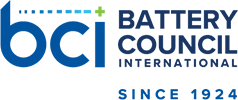WASHINGTON – Contrary to what most people think, newspapers, glass or aluminum cans are not America’s most recycled consumer product. Lead batteries hold the honor at a whopping 99.3 percent, according to the Environmental Protection Agency.
To celebrate annual America Recycles Day 2018 on November 15, the lead battery industry is proudly sharing the impressive sustainability story of lead batteries. Their near-perfect recycling rate far surpasses that of other products (newspapers, in second place, at about 68 percent) and other battery technologies used in transportation and energy storage, such as lithium-ion batteries (estimated at less than 5 percent).
Why Lead Batteries Reign in Recycling
“A number of factors keep 1.7 million tons of lead batteries out of landfills annually and make lead batteries the most sustainable battery chemistry in the marketplace,” said Kevin Moran, executive vice president of Battery Council International (BCI). “Foremost, is that lead is infinitely recyclable. The lead industry has invested in a nation-wide system that creates a circular economy for lead and other lead-battery components (plastic and acid). Today, a new lead battery consists of over 80 percent recycled lead.”
“We’re proud of the industry’s state-of-the-art closed-loop collection and recycling system. It’s a perfect example of a circular economy. Rather than make-use-dispose, we’re able to recover all elements of the battery and reuse them repeatedly, keeping them in use for as long as possible,” Moran said.
How BCI Member Companies Will Celebrate
Many BCI members, such as Gopher Resource, will take special actions to observe America Recycles Day. Gopher Resource is a leading North American lead battery recycler, with facilities in Eagan, Minn., and Tampa, Fla. The company also operates The Dakota County Recycling Zone, a recycling center near the company’s Eagan campus for community members. The center provides safe, convenient recycling of select household waste, electronics and general recyclable items that would otherwise load up landfills.
For America Recycles Day, Ray Krantz, Gopher Resource director of business development, said Eagan employees will remove trash from a nearby highway.
“As a lead battery recycler, we recycle seven days a week, 24 hours a day. But for America Recycles Day, we want to help the community and be more visible, so we’ve adopted a two-mile stretch of highway and will collect trash there,” explained Krantz, who is based in Eagan. He noted that the company’s Tampa facility has adopted a local recreational park that employees clean on a quarterly basis.
See America Recycles Day 2018, a Keep America Beautiful national initiative, to learn how to get involved with the only nationally recognized day dedicated to promoting and celebrating recycling in the United States.
For More Information
Battery Council International is the North American trade association representing lead based-battery manufacturers, suppliers, recyclers, and distribution companies – a total of approximately 250 companies and 20,000 employees. For more information on the association, visit batterycouncil.org.
Essential Energy Everyday exists to increase awareness of the critical importance of lead batteries to power our daily lives. It encourages continued investment in sustainable lead battery technology to store and provide energy on demand. Its initiative is supported by the two global trade associations that represent the lead battery industry, Battery Council International and the International Lead Association.
CONTACT: Lisa Dry
Ldry@batterycouncil.org
202-367-1240


